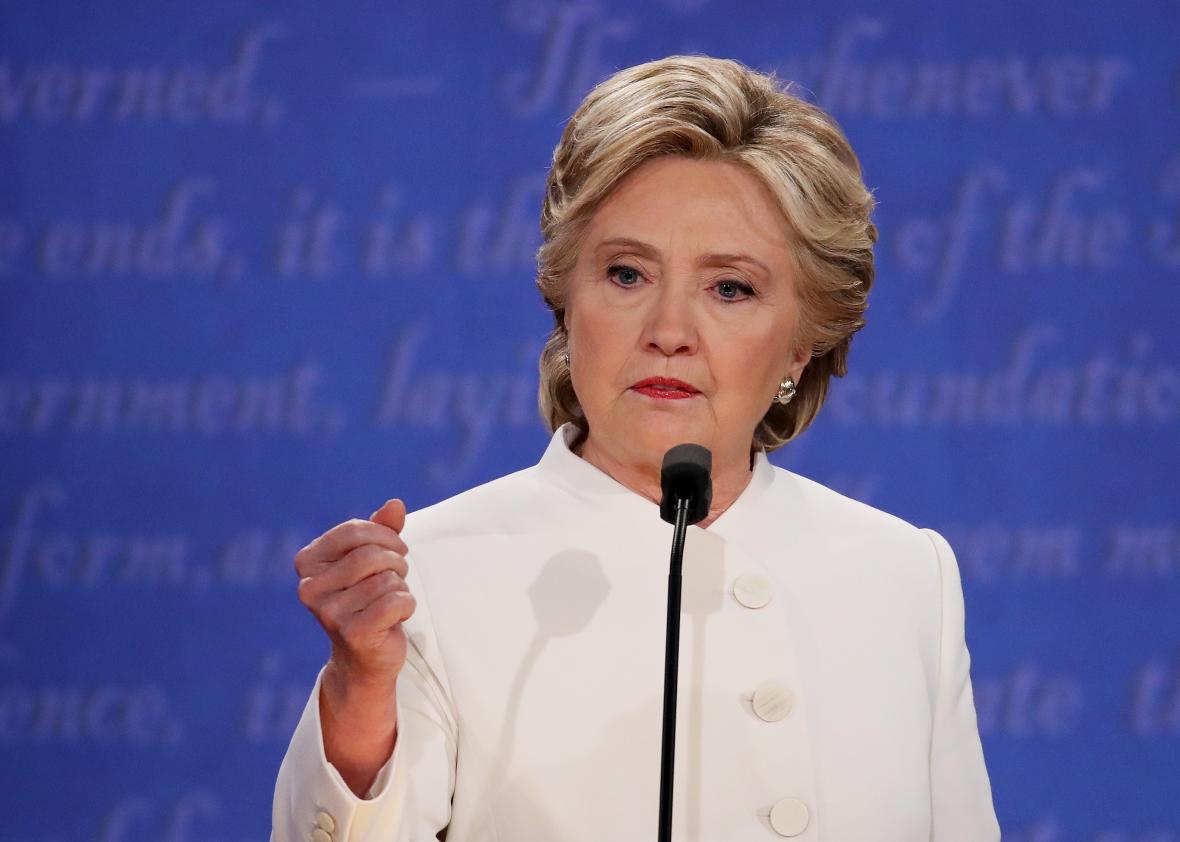Finally, for the first time in their presidential debates, Hillary Clinton and Donald Trump faced off on abortion on Wednesday night.
As one would expect from a candidate who’s not quite sure what he thinks about the procedure, Trump stumbled over his response. He claimed he’d nominate pro-life justices to the Supreme Court but refused to say whether he’d wish to overturn Roe v. Wade.
And as one would expect from a candidate who’s spent her career speaking about women’s health, Clinton delivered an impassioned defense of the right to reproductive autonomy. “I will defend Planned Parenthood. I will defend Roe v. Wade, and I will defend women’s rights to make their own health care decisions,” she said.
When moderator Chris Wallace pressed her on “how far” she’d take abortion rights when it comes to late-term procedures, Clinton explained why she voted against a ban on late-term abortions. “I have met with women who have, toward the end of their pregnancy, get worst news one can get,” she said. “That their health is in jeopardy if they continue to carry to term. Or that something terrible has happened or just been discovered about the pregnancy. I do not think the United States government should be stepping in and making those most personal of decisions.”
In other words, if a woman finds out at 32 weeks’ gestation that her fetus has a fatal defect and won’t be able to survive once it’s born, she shouldn’t be forced to endure the trauma of carrying that fetus to term. Right-wing politicians in Poland nearly proposed banning abortions in all cases in recent weeks; countrywide protests spurred by the specter of mandated pregnancy even in horrific circumstances forced the conservatives to retreat, for the most part.
Trump, meanwhile, seemed to confuse partial-birth abortions with Cesarean sections. “You can take the baby and rip the baby out of the womb of the mother just prior to the birth of the baby. Now, you can say that that is OK, and Hillary can say that that is OK, but it’s not OK with me,” he said. This is not how any abortion procedure works. Trump’s frightening explanation highlights why it makes more sense for women to make medical decisions with their doctors, rather than bloviating sadists who aren’t sure how babies exit the human body.
Unlike Trump, Clinton has seen the brutality that comes along with hyper-restrictive abortion policies or coercive reproductive laws. “You should meet with the women I’ve met with; women I’ve known over the course of my life. … I’ve been to countries where governments either forced women to have abortions, like they used to do in China, or forced women to bear children like they used to do in Romania,” she said, audibly angry. “And I can tell you the government has no business in the decisions that women make with their families in accordance with their faith, with medical advice. And I will stand up for that right.”
Clinton has a way of making this issue sound as urgent and as real as it is for women who’ve had, considered, or been denied abortions. This isn’t a theoretical situation that concerns some unknowable group of people, some demographic entity. This is about women, about us. It’s one of the major differences between this presidential election cycle and every other one. When men discuss abortion among themselves, as they do in far too many policy discussions, it takes on a detached air of philosophical principles. When Clinton’s on the stage, it becomes about flesh and blood: women’s bodies and their most private, sacred rights to determine the courses of their own lives. Of all the reasons it benefits the nation to have more women in politics, this may be the biggest—the shift of women’s lives from the realm of hypotheses into the real world.
